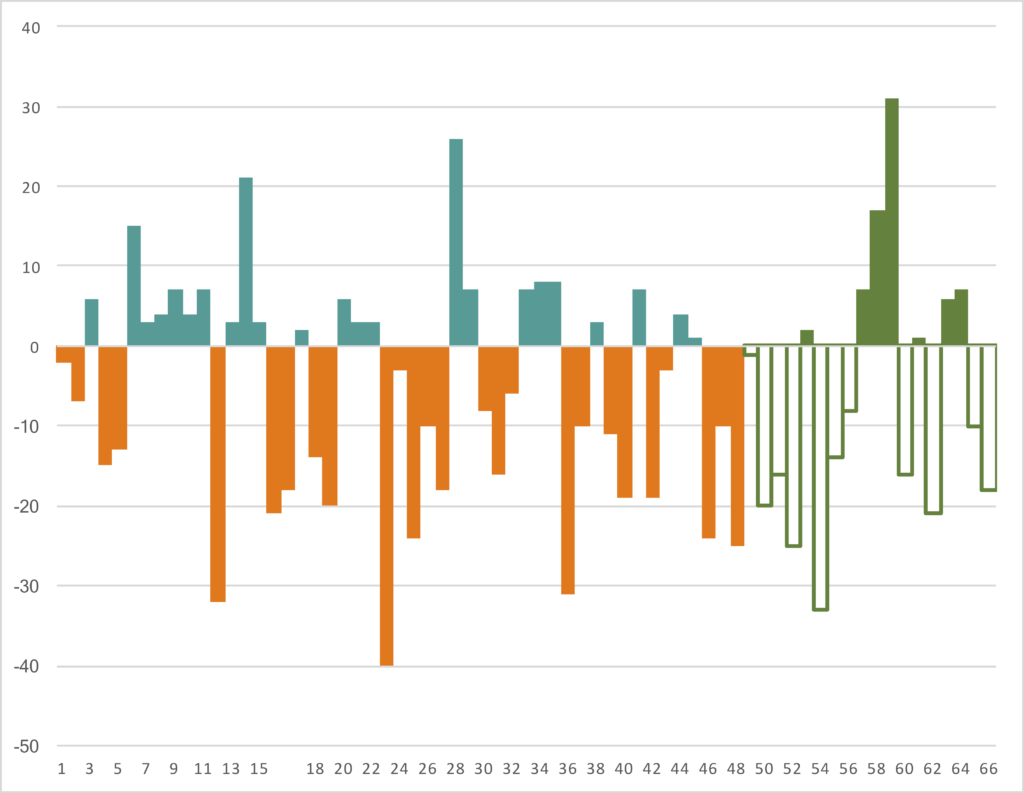When the Jets decided to hire Adam Gase as head coach, I noted that it was an unusual hire because Gase’s teams had been outscored significantly when he was the Dolphins head coach. His record in Miami was 23-25, the result of winning a number of close games. So what did that mean for Gase’s prospects going forward?
And we could look at this two ways: did he coach a terrible team that got lucky to have a few more wins than they should have (in which case Gase should be considered a bad coach), or did he oversee a talent-poor team and coached them up to win more often than they should have (in which case Gase should be considered a good coach)?
From 2016 to 2018, Miami went 18-5 in games decided by 7 or fewer points, and 20-6 in games decided by 8 or fewer points. Both records were comfortably the best in the league. So, is that sparkling record in close games a positive for Gase — hey, he’s a great coach who wins when the talent level is close! — or a negative for Gase (he’s a terrible coach who is lucky his teams won as often as they did).
Unfortunately for Jets fans, nearly all the research on this subject suggests that a team’s record in close games is not reflective of skill, but of luck. The Jets have been terrible in close games in recent years, while Gase has been great: you would expect some regression to the mean in either instance, and I would project the Jets to be about .500 in close games during Gase’s tenure.
The bigger cause for concern, then, would be this: Gase went an almost unfathomable 3-19 in games decided by more than 8 points during his time in Miami.
A few months later, I dove even deeper into Gase’s weird splits in close and non-close games. Over his three years in Miami, Gase’s teams had the best record in the NFL in close games, and the second-worst record in non-close games. Based on how the other highly-regarded coaches fared in this split, I wrote that “if Adam Gase is a great coach who was overachieving with a bad roster, he’s pretty unique in that regard.”
Fast forwarded 18 games later, and the evidence is more convincing than ever that Adam Gase is not a great coach. The evidence is also still there that Gase has this weird split between close and non-close games. In New York, Gase is 2-9 in games decided by more than 8 points, and 5-2 in games decided by 8 or fewer points. And that includes a game where the Jets trailed the winless Dolphins by 11 points with 20 seconds left, and kicked a field goal to cut the lead to 8 in the hopes of recovering an onside kick, scoring a touchdown, converting a 2-point attempt, and outscoring Miami in overtime. If not for that meaningless field goal, Gase would be 2-10 in non-close games and 5-1 in close games with the Jets.
But ultimately, Gase is 5-28 in games decided by more than 8 points in his now 4+ year head coaching career. He’s also 25-8 in close games! The graph below shows the points differential for Gase’s teams in each of his 67 games as head coach. If you think this graph looks like an iceberg, you are right: most of the action takes place below the surface.
Ultimately, Gase’s 25-8 record in one-score games remains remarkable. But I don’t think there are too many people these days who view that as a sign of him being a great head coach. In general, we should realize that lots of luck goes into who wins and loses close games, and points differential is a much better indicator of play than a win-loss record. That also is worth keeping in mind when talking about certain quarterbacks who play very well but don’t have great records due to a poor record in close games.

